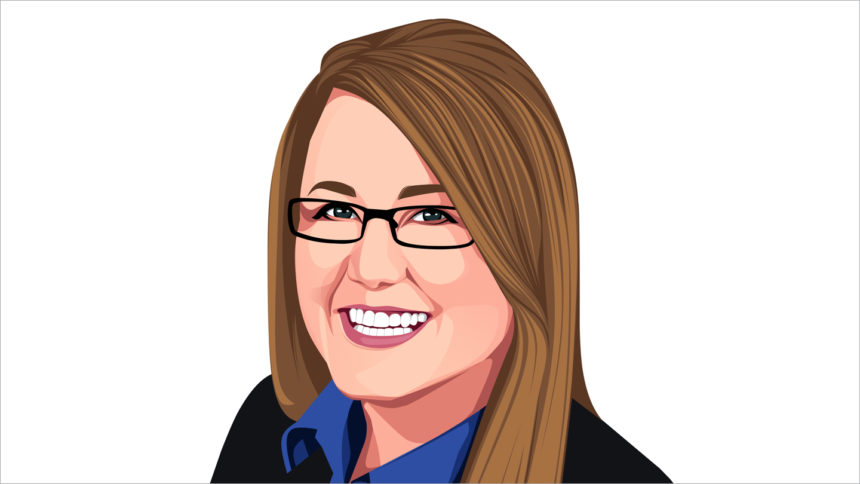
Older Americans Month is coming to an end on Friday, but there’s still time to explore the 2024 theme of “Powered by Connection” as relates to senior living. In fact, it’s always a good time to communicate the difference senior living can make in the lives of older adults.
The Administration for Community Living, the federal agency that leads the annual observance, said it chose this year’s theme to recognize “the profound impact that meaningful relationships and social connections have on our health and well-being.” Much research has shown that senior living is one place that such relationships and connections can form for older adults.
For instance, a summer 2022 report from the American Seniors Housing Association and ATI Advisory found that senior living communities improved quality of life during the pandemic through cohesive social environments and encouragement of residents to participate in social activities. Residents, the study found, were more likely to have greater social, physical and intellectual wellness than their counterparts living in the greater community.
And in 2021, a survey from Activated Insights reported that just 20% of senior living residents reported feeling “severely lonely.” The survey also revealed a potential decline in loneliness among older adults in assisted living and other congregate living settings from before the pandemic.
This year’s OAM comes a year after US Surgeon General Vivek Murthy, MD, announced a “National Strategy to Advance Social Connection” to address what he termed an “epidemic of loneliness and isolation.”
In the 82-page publication, “Our Epidemic of Loneliness and Isolation,” Murthy said that loneliness and isolation are linked to pain, depression and shorter life spans in older adults and that loneliness may have connections to numerous health conditions, including dementia, heart disease, stroke, diabetes, addiction and suicidality.
In the wake of this advisory, the senior living industry held up assisted living as a way for older adults to strengthen social connections.
“Assisted living is a home- and community-based shared care model that has the lowest incidence of loneliness of any form of long-term care, offering improved quality of life and better health outcomes for the more than 1 million older Amercians that call these communities home, Argentum Senior Vice President of Public Affairs Maggie Elehwany said at the time.
Organizations nationwide are continuing to work to promote social connections in all types of settings, including senior living communities.
Abby Gadbois, MPH, of the Washington, DC-based policy and healthcare consulting firm Healthsperien, recently said that the country is “at a watershed moment for policies that address social isolation and loneliness.” Half of older adults feel isolated alone or left out, and that reality is costing Medicare an estimated $6.7 billion annually, she said.
Last month during a LeadingAge member, Gadbois detailed the efforts of the Coalition to End Social Isolation & Loneliness, a diverse group of national organizations that counts LeadingAge, Front Porch and LifeLoop among its members.
Since then — just last week, in fact — Sens. Mark Rubio (R-FL), Tina Smith (D-MN) and Rick Scott (R-FL) announced that they were introducing the Social Engagement and Network Initiatives for Older Relief, or SENIOR, Act (not to be confused with another SENIOR Act, the Safeguarding Elderly Needs through Innovation and Occupational Resources Act, introduced in the House of Representatives in 2022, 2023 and in March and backed by Argentum) in an effort to address senior loneliness.
The senators said that their bill would:
- Promote programs that combat loneliness and support community integration for older adults by adding “loneliness” to the definition of “disease prevention and health promotion services” under the Older Americans Act;
- Direct the secretary of Health and Human Services to prepare a report on the effects of loneliness on older adults and propose solutions for those identified effects; and
- Through the report, analyze the relationship between the strength of multigenerational family units, loneliness and older adults.
The act has the support of the Coalition to End Social Isolation and Loneliness; the National Council on Aging; US Aging, which represents and supports the national network of Area Agencies on Aging; a Florida organization known as the Senior Resource Alliance; and Centerstone, a mental health-focused organization with locations in Florida, Illinois, Indiana and Tennessee.
“Across the aging services continuum — including home-based care and services, adult day programs, nursing homes, and independent and assisted living communities — aging services providers excel at creating relationships and connections to help older adults thrive as they age,” LeadingAge said as Older Americans Month started.
As the official observance ends, efforts will continue to share how providers meet those goals and support older adults.
Lois A. Bowers is the editor of McKnight’s Senior Living. Read her other columns here. Follow her on X (formerly Twitter) at Lois_Bowers.

